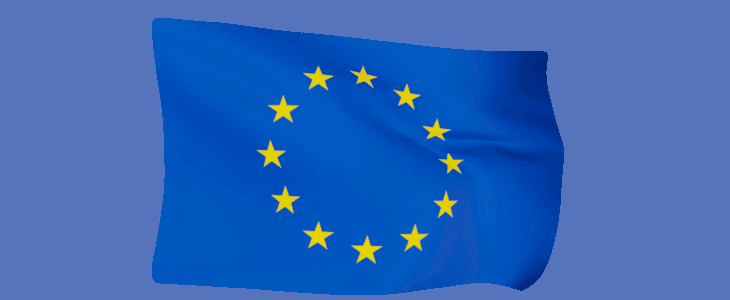Foreign currency exchange is a convenient method whether traveling abroad or making forex trades. However, some banks do not offer currency as it goes against their policy and other restrictions.
Nonetheless, the US Central Bank offers currency exchange with enough security protocols and is very flexible with the process. This is extremely handy for foreign travel and trading, especially on platforms like MetaTrader 4, CFD, the Forex market, and online trading.
Regardless, these are facts that you should know about the US central bank currency exchange.
Central Bank Currency Exchange
The Role Of Central Banks
There are many roles that the central bank in the US follows, and some of these roles include:
- Monetary Policy: The US Central Bank operates through monetary policy to attain the scientific, economic aims that make a consistent economy. The whole process requires placing interest rates and converting credit statuses to influence the taking and spending.
- Currency: This is a major factor in the central bank, as the central bank provides and controls the country’s financial matters. It guarantees sufficient convenient transactions and carries on the currency’s probity.
- Foreign Exchange: The US central bank controls foreign financial reserves and?? Converting rate approaches to ensure lucrative consistency. The central bank implements this process by infusing foreign benefits and interceding in the overseas financial supply business.
- Payment Systems: The US central bank is occupied in transactional structures as operatives, monitors, and candidates.

Why Central Banks Do Not Offer Currency Exchange?
There are many factors and restrictions behind the central banks’ confined policy of currency interchanges. And some of those reasons include:
- Keeping track of currency: The US central bank is responsible for managing the country’s finances via purchasing and selling them in the supply market or via positioning a secured supply rate.
- Affecting Monetary Customs: The central banks have the leverage to affect the pecuniary policy while keeping up the overseas supply reserves. These are effective for backing up the accountabilities and can be helpful to offer solutions in difficult situations.
- Managing Financial Conduct: The central bank in the US manages the financial exchange by printing currency. This factor is responsible for the growth of financial circulation.
It is important to note that the central banks do not normally provide financial exchange facilities due to having several responsibilities that include directing monetary schemes and the country’s financial affairs.
Also, if you want to exchange currencies then credit unions or localised banks are the best locations to go to. And surprisingly, most of the major banks include foreign ATMs for currency exchange.
Who Provides Currency Exchange For Central Banks?
The shortest answer to this question would be the Central Banks, but more factors play a role in this scenario. The Central banks hold the key to exchange finances in the overseas supply platforms, which is, to everyone’s common knowledge, called the forex market.
The Forex platform is a twenty-four-hour platform where the central banks, financial departments, and explorers exchange currencies.
Also, the central bank in the US can get involved in overseas supply exchanges, which are a financial trading market. What happens in foreign currency exchange is when the central bank deals with foreign supply and is vulnerable to default dangers by the opposing party.
These banks also have the liability of interceding in foreign finance markets to make the supply rate more consistent or create reserves. Let’s say, for example, the Swiss National Bank sets a base supply rate for the Swiss franc and the euro from 2011 to 2015.
Foreign Exchange Reserves vs. Currency Exchange
| Foreign Exchange Reserves | Currency Exchange |
| The foreign exchange reserves are factors that are grasped through the country’s respective central bank or monetary jurisdiction. | Currency exchange or financial exchange is primarily an authorized business that lets consumers trade one currency for another. |
| Foreign exchange reserves are also called forex reserves. These benefits are kept in SDRs, gold, overseas currencies, and IFM reserves. | Consumers exchange or trade physical currency at an authorized financial trade business, which goes by a French name called Bureau de Change. |
| Exchange reserves are used to support the country’s accountability, like its general finances, along with bank reserves. | The finance exchange process is normally completed at cashier establishments like airports, local banks, and resorts all over the country. |
| The Central Banks also have access to use overseas supply reserves to impact the country’s financial stats. | For currency exchange, a bank can just automatically supply the currency required to the customer. |
Currency Exchange And Economic Policy
It is indisputable that a country’s financial exchange is responsible for its economic development and growth. Exchange rate customs are also a medium that governments control and affect. It is via supply-rate schemes that a government can decide the values of overseas currency and the consistency of the amount.
Here is how it can affect the economy:
- Internal Prices: The supply rate has the sufficient capability to influence many parts of domiciliary currency values.
- Investor Reciprocate: The value of the exchange rate can affect an investor’s return or his portfolio.
- Comparative Prices: Relative Prices are also affected by exchange rates and the price formation of values that are exchanged internationally against the products in the locality.
- Exchange: Supply rates prominently influence a nation’s trade level, which is necessary for economic platforms.
Common Misconceptions Regarding Currency Exchange
There are a few misconceptions regarding currency exchange. Here are a few misconceptions that you should know:
- Many people think forex trading is easily operable but in reality, it requires the traders to grasp the market knowledge, strategies, and sufficient research on the market flow.
- Drifting supply rate structures can make an unstable economy is also a myth.
- It is considered that forex is only available to professionals but in truth, it is available for every participant.
- You might require a huge amount of money to initiate trading but this is not true, you can actually trade with less money.

FAQs
1. Can we exchange currency through the Central Banks?
– Yes, Central Banks do offer currency exchanges.
2. Which bank has the best currency exchange rate in the US?
– The best bank for exchanging currency in the US is the Bank of America.
3. What do you call a central bank currency swap?
– The currency swap is normally regarded as a central bank fluidity swap. It involves a deal between two central banks to exchange currency with one another.
4. Does the central bank of the US print currency?
– No, they do not print currency although they control the money exchange.
Conclusion
It is important to remember that a central bank’s accountability for currency exchange policy and its application highly depends on the matter of currency supply rate government. The decision often involves political affairs to ensure the process, however, the central bank is nonetheless crucial.
As far as it is considered, currency exchange via the Central bank is not restricted but there are some protocols to follow.
Also, We would also like to introduce our trading platform called FXCess. According to many user reviews, our platform offers swift financial withdrawals and various facilities for trading convenience. It is also flexible and user-friendly for achieving your trading goals.
Disclaimer:
This information is not considered as investment advice or an investment recommendation, but instead a marketing communication. FXCess is not responsible for any data or information provided by third parties referenced, or hyperlinked, in this communication
